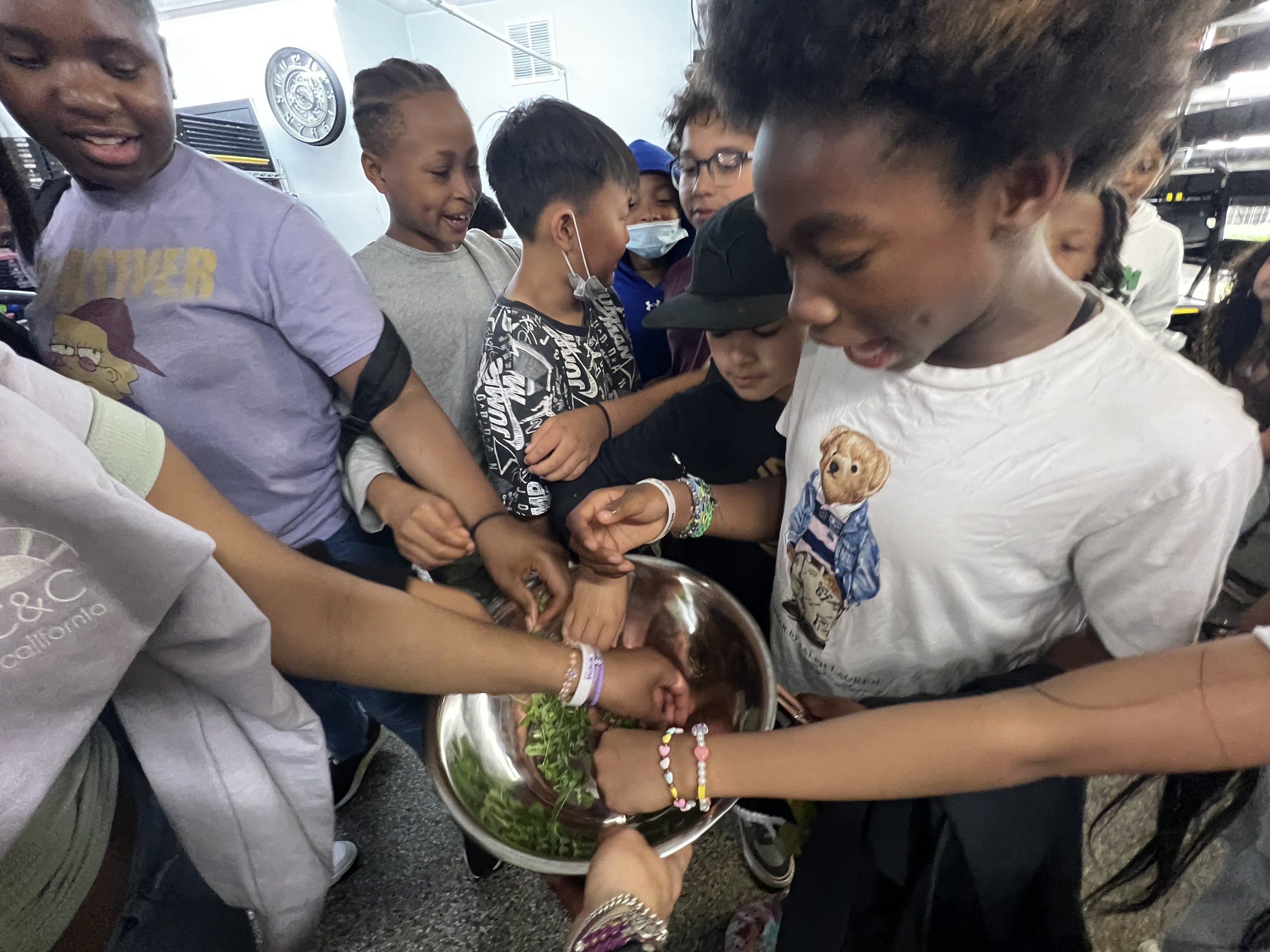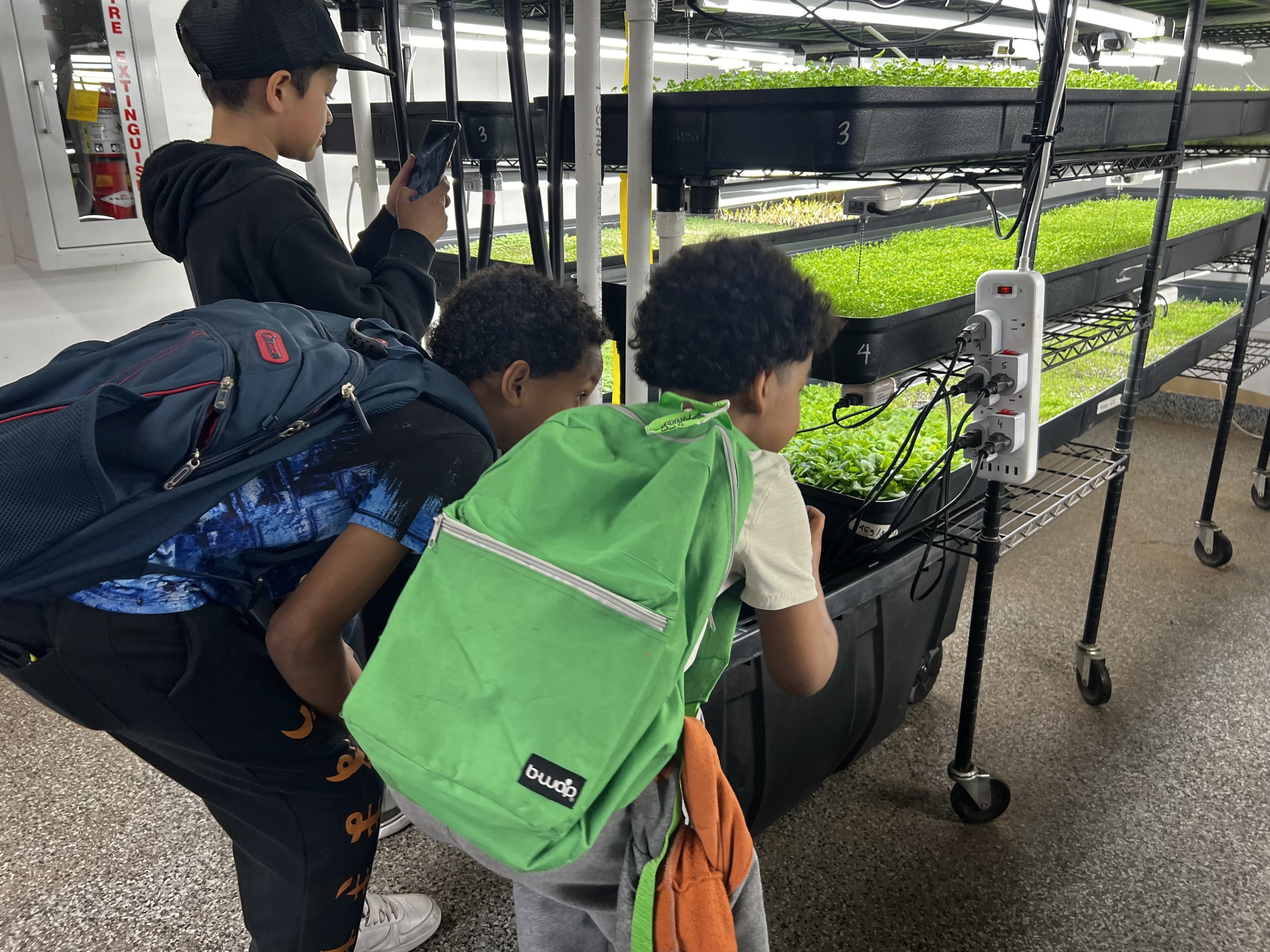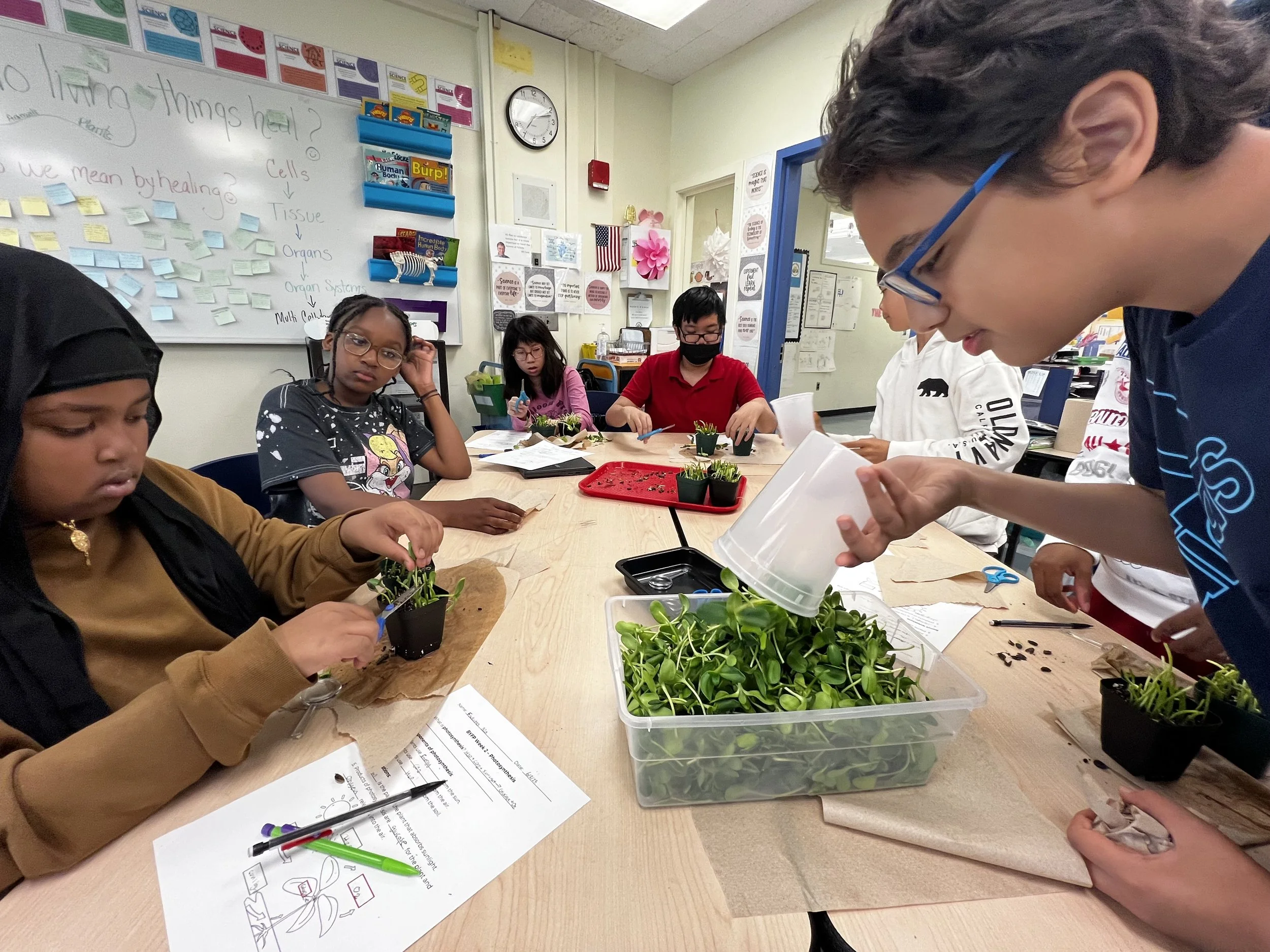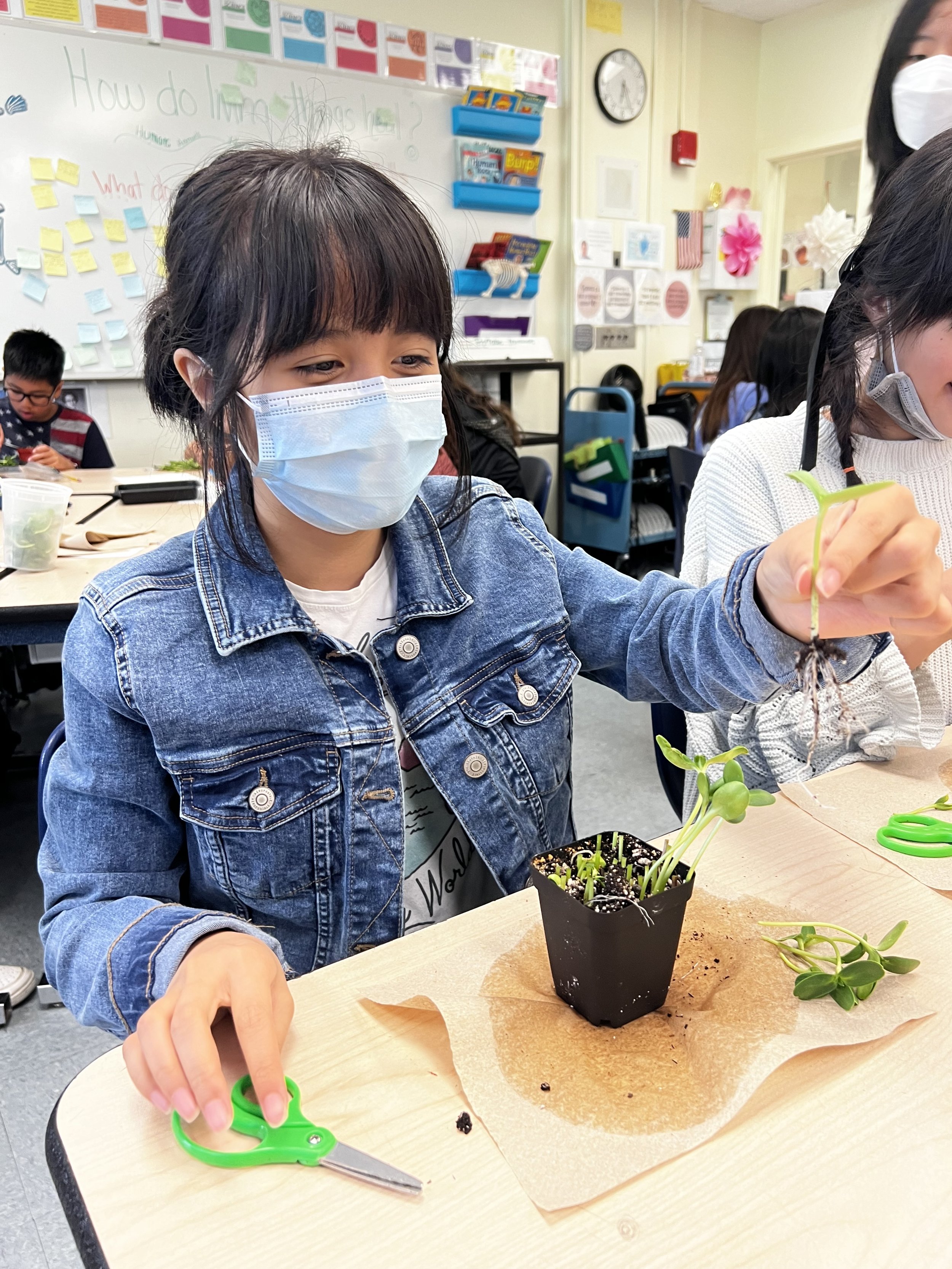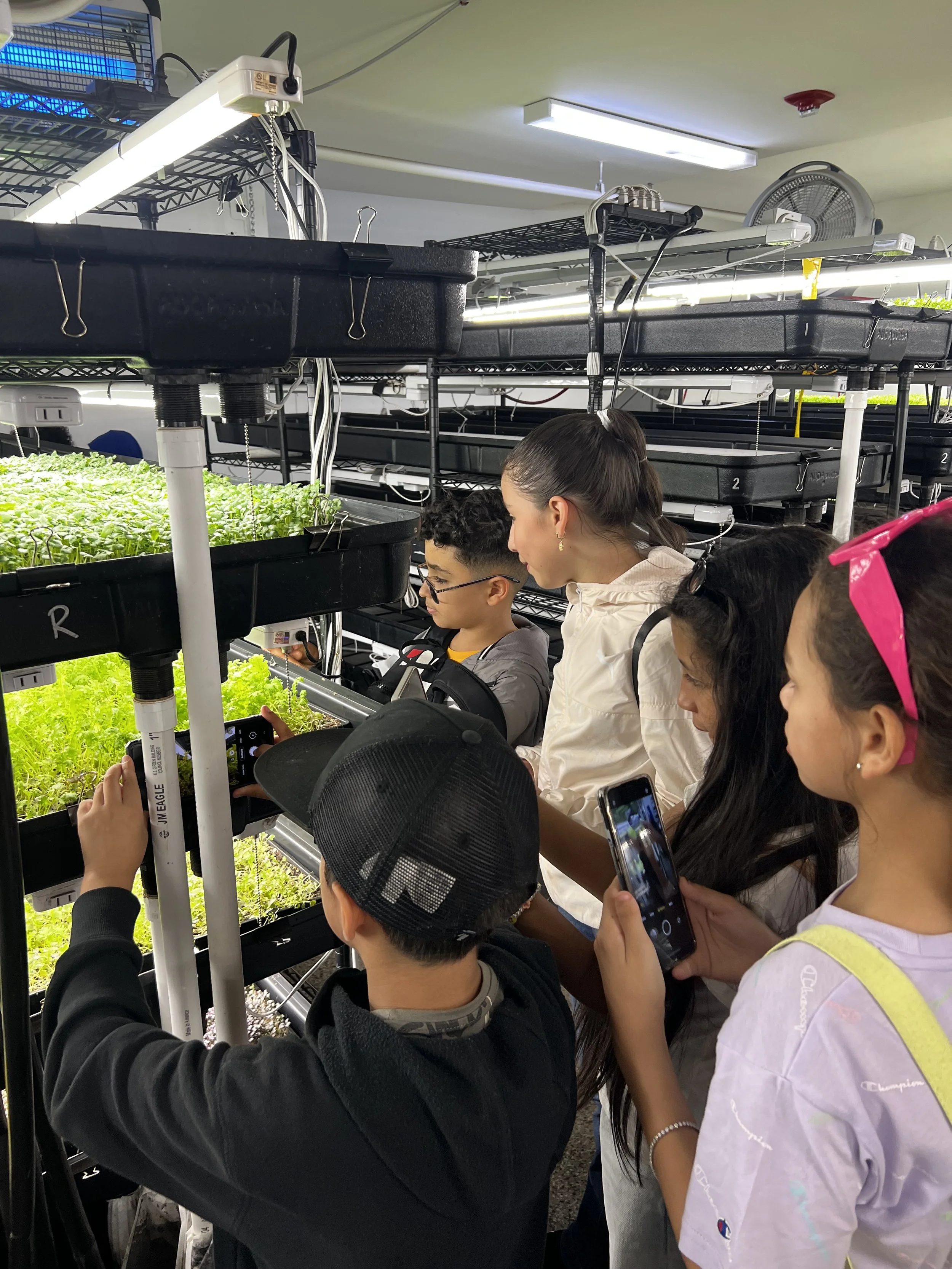We work directly with teachers and staff to tailor our flexible lesson plans to each school’s curriculum.
Why? A Deeper Mission Statement
Growing plants is an ancient human tradition that ties us to the land and gives us unique insights into many facets of our own lives. We believe that families and communities deserve to benefit from a relationship with nature and learning how plants grow is the best place to start! At BYFP we see urban agriculture as a way to connect people with their food and our planet. We strongly believe that access to this type of hands on learning has the ability to let students expand into new ways of thinking that could propel them into endless new directions and opportunities and develop both emotionally and professionally.
Whether with a raised bed, a single bean or a microgreen tray, growing plants provides new perspectives and instills confidence. Our team has a rich combination of experiences and backgrounds in different kinds of agriculture, permaculture, soil science and farm technologies. This diversity serves us well. Through the Boston Youth Farm Project, we are able to provide hands-on experience at little or no cost to schools by bringing an urban farm experience to the classroom, easing burdens of a field visit, permissions, transportation, and learning time.
Lesson Outline
An Example of a 6th Grade Science Curriculum
● Week 1: Plant Science – Week one is all about learning why plants are so special. We learn about how seeds are the first and last stage of a plants life and how they are stored energy and information. We learn about photosynthesis and how it is the basis of almost ALL life on earth. We jump right into planting and each student gets their hands in the dirt planting their very own arugula microgreens that will be ready for harvest week 3.
● Week 2: Food and the Environment – This week is all about our food and where it comes from. In the modern world so many of us are disconnected from our food and this lesson really aims to let that message sink in. After our initial plant obersattions students jump right into interactive exercises and hands on tasting opportunities where we learn how food travels, the benefits of eating local and the relationship that we have with our planet of resources that supports us. Then it’s time to get right back to our planting. This week we get to seed Sunflower and Pea microgreens that will also be ready for harvest week 3!
● Week 3: You are what you eat – It’s time to party! Week 3 is our opportunity to taste these beautiful and nutritious microgreens that we’ve been nurturing for the past two weeks. After a brief conversation about how food is fuel and the importance of nutrition with fun examples it’s time to pack out those child safe scissors and get to work harvesting our delicious microgreens. We are always amazed by how many students with a previous salad-eversion end up gobbling down multiple bowls of freshly harvested produce. This last day with us provides ample time to interact with our plants, ask questions and really let the core concepts sink in.
● Week 4: Optional Boston Microgreens Field Trip – Boston Microgreens is Boston’s biggest urban and indoor farm located at 416 W Broadway in South Boston. Students are able to see a real indoor farm in action and are able to further expand their learning on some of the topics covered in the classroom. it’s a great opportunity for students to get out of the classroom and expand their horizons. It’s always a ton of fun!

